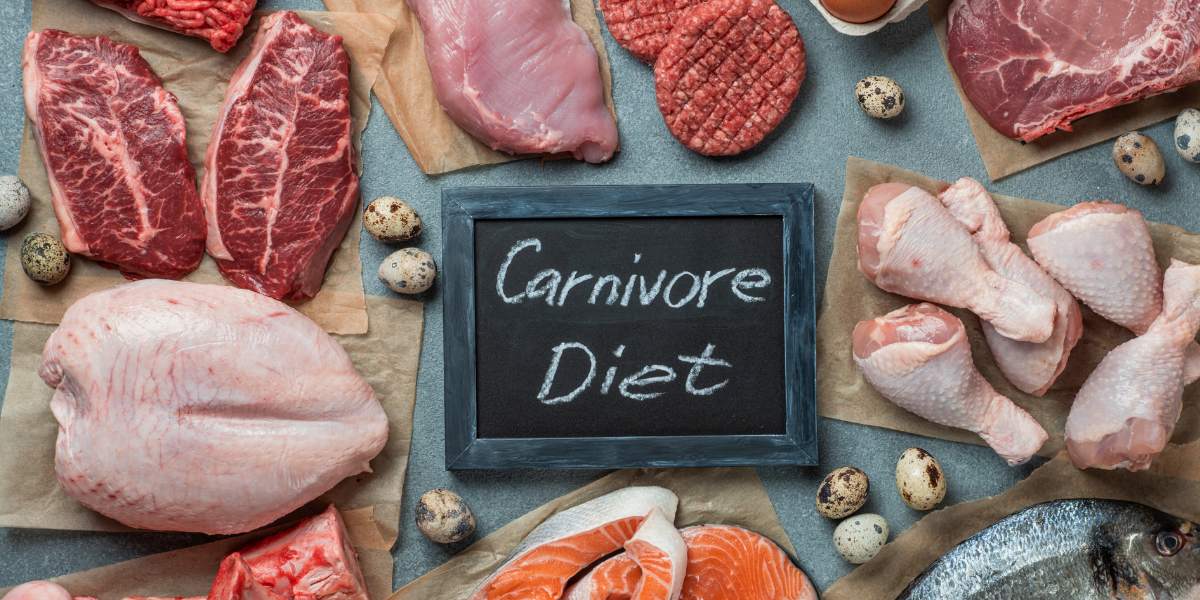The carnivore diet, also known as the all-meat diet, is a dietary approach that consists of animal products only.
People following the carnivore diet eat a diet of meats, fish, eggs, and dairy products, but exclude all vegetarian, or plant-based foods.
As such, followers of a strict carnivore diet avoid fruits, vegetables, grains, and legumes.
The meat only diet has gained popularity in recent years, particularly on social media, as a way to improve health, lose weight, and alleviate certain medical conditions.
- Growth outcomes similar in children following meat and plant diets, research confirms
- Study finds lean red meat can be consumed as part of a healthy diet
The carnivore diet is also referred to a as a zero carb diet, made famous by Shawn Baker, MD, an orthopedic surgeon and influencer in the carnivore diet movement. Other proponents include Kelly Hogan and Jordan Peterson (whose daughter Mikhaila Peterson introduced him to the carnivorous diet).
This is presumably as the carnivore diet is a form of a low carb diet.
Does research support a carnivore diet?
Proponents of the carnivore diet argue that it is a natural and evolutionarily appropriate diet for humans. It is proposed that our ancestors ate mostly animal products and our bodies are well adapted to digesting and utilising them.
However, as it is a relatively new diet, there is limited scientific research on the long-term effects of a carnivore diet.
Some small studies have suggested that a carnivorous diet may improve markers of health, such as weight loss, blood sugar control, and inflammation. However, it is important to note that these studies have been small and short-term, and more research is needed to fully understand the potential benefits and risks of such a diet.
Additionally, a carnivore diet can be nutritionally inadequate and lacks essential nutrients found in plant-based foods, that’s why it’s important to consult with a doctor or a dietitian before adopting such a diet.
Carnivore diet menu
A carnivore diet can comprise:
- Red meat such as lamb, pork, and beef
- Organ meats
- Chicken and turkey
- Fish
- Eggs
- Lard
- Bone marrow
- Butter or ghee
- Salt and pepper
- Water
- Bone broth
- Sauces are permitted if they are made only with meat drippings and no additional binding ingredients
What to avoid on a carnivore diet
Foods to avoid are:
- Fruit and vegetables
- Nuts and seeds
- Legumes
- Bread
- Pasta
- Grains, including whole grains
- Alcohol
The diet is low in unhealthy processed foods and thus naturally low in added sugar.
Concerns with a carnivore diet
The carnivore diet is also low in fibre. Fibre is important for maintaining healthy digestion and preventing constipation.
Fibre is only found in plant-based foods and lack of fibre in the diet can lead to digestive issues and an increased risk of colon cancer.
The carnivore diet is also low in essential micronutrients such as vitamins and minerals, which are important for maintaining overall health. These micronutrients are found in plant-based foods and a diet lacking in these nutrients can lead to deficiencies and an increased risk of chronic diseases.
- 13 easy ways to add fibre to your diet
- Too much nitrite-cured meat increases cancer risk say scientists
Another concern is that the carnivore diet is low in antioxidants and phytochemicals, which are compounds found in plant-based foods that have been shown to have anti-inflammatory and anti-cancer properties. These compounds help to protect against chronic diseases such as cancer and heart disease.
The diet may not be sutiable for certain groups of people. People who must limit their protein intake such as those diagnosed with chronic kidney disease should not follow this dietary approach.
Conclusion
In conclusion, the carnivore diet is a dietary pattern that consists of only animal products and excludes all plant-based foods.
While proponents argue that the diet is natural and evolutionarily appropriate for humans, there is a lack of scientific evidence to support the long-term safety and efficacy of the carnivore diet.




